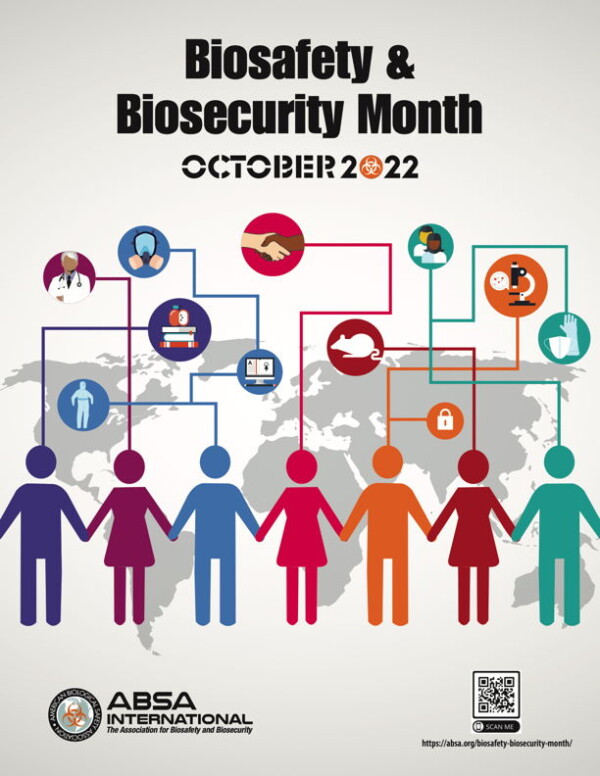October is Biosafety & Biosecurity Month
October 17, 2022 - J. Willard
October is the American Biological Safety Association (ABSA) International’s Biosafety & Biosecurity month putting a spotlight on research and teaching institutions as an excellent way to foster a culture of biosafety and biosecurity. The Biosafety and Biosecurity Month began as a “National Biosafety Stewardship Month,” sponsored by the National Institutes of Health Office of Science Policy as an initiative to promote stewardship of the life sciences and biosafety awareness. Launched in 2013, this initiative was created to promote awareness of biosafety, biosecurity, and biorisk management as a profession and to help those who work with or around biohazards understand how biosafety precautions work to protect them, their colleagues, and the environment from biohazard risks. In 2017, the torch was passed from the NIH OSP to ABSA International to continue the spotlight month.
The 2022 Biosafety and Biosecurity Month will not have a theme, but will rather go back to the core components of ethical research, transparency, training, engagement, and stewardship of biosafety and biosecurity. Training is a federal and state requirement and something we see varying levels of compliance. As good stewards, please complete your required training (biosafety, chemical safety, radiation safety, hazardous waste, etc).
At Michigan State University, the Office of Environmental Health & Safety oversees the efforts to protect occupational health and the environment. We assist faculty, staff, and others in maintaining a safe and compliant learning and workplace. We will focus on EHS Training and Site Specific Training and the need to participate in and maintain an up-to-date training status as your tenure continues at the University and all satellite locations. EHS conducts online and in-person training to ensure MSU personnel follow safe work practices and to ensure compliance with local, state and federal requirements in lab and occupational safety and environmental health. Many biosafety/biosecurity training specialty courses are offered including biosafety (Risk group 1-3), bloodborne, autoclave, medical waste, fit testing, biological substance shipping, and site-specific training. The latest update is site-specific training, which traditionally has been a paper form, can now be completed electronically and uploaded to Ability LMS.


